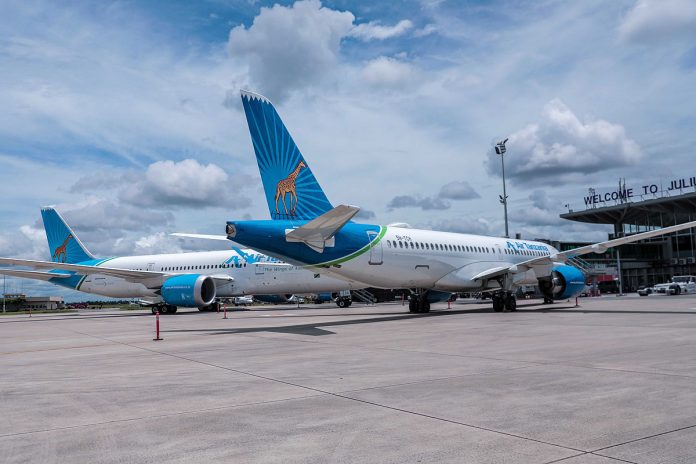On June 3, 2025, the European Commission officially banned all Tanzanian and Surinamese airlines from operating within EU airspace, citing major safety oversight failures. The decision, reported in an updated EU Air Safety List, marks a significant escalation in aviation safety enforcement, just six months after Tanzania’s national carrier, Air Tanzania, was individually blacklisted.
According to Travel News Africa, the ban follows assessments by European aviation safety experts that uncovered serious deficiencies in both operational practices and regulatory oversight by the Tanzanian Civil Aviation Authority (TCAA) and its Surinamese counterpart. These include a shortage of qualified personnel, ineffective safety monitoring systems, and failure to comply with international aviation standards.
“This decision is based on serious safety concerns,” said EU Commissioner for Transport Apostolos Tzitzikostas. “We urge both countries to address these issues promptly, and the Commission stands ready to support their efforts toward full compliance.”
The updated EU Air Safety List now includes 169 airlines banned from European skies—142 of which are based in 17 countries with insufficient aviation oversight, including Afghanistan, Angola, DRC, Libya, Sudan, and now Tanzania and Suriname. Notably, Suriname’s Blue Wing Airlines has remained on the blacklist since the EU first launched the safety list in 2006.
For Tanzania, this latest development is a blow to its aviation ambitions. Air Tanzania, which boasts a modern fleet including Boeing 787 Dreamliners and Airbus A220s, had recently announced plans for direct flights to London Gatwick and other European cities. Those plans are now indefinitely suspended, with the ban affecting all direct and codeshare operations involving Tanzanian carriers on EU routes.
The implications for African travel agents are immediate and far-reaching. Many had begun integrating Air Tanzania’s planned European routes into their travel packages. Now, with those connections severed, agents must pivot quickly to reconfigure itineraries and find alternative routing solutions for clients.
The ban also affects interline agreements and connecting flights through EU hubs, adding complexity to travel bookings involving Tanzanian carriers. Agents will need to be proactive in managing client expectations, issuing rebookings, and ensuring continuity of service.
However, the disruption also presents an opportunity for travel agents to demonstrate their value. Airlines like Ethiopian Airlines, Kenya Airways, RwandAir, and South African Airways offer robust connections to Europe through their African hubs. Additionally, Gulf carriers such as Emirates, Qatar Airways, and Turkish Airlines provide reliable alternatives through the Middle East.
By leveraging these options, agents can maintain seamless travel experiences and reinforce client trust. The current situation highlights the importance of industry awareness, flexibility, and maintaining strong partnerships with airline networks across Africa and beyond.
The Tanzania Civil Aviation Authority has expressed its disagreement with the EU’s blanket ban and confirmed ongoing efforts to address the identified safety concerns. It is actively working on capacity building, regulatory reforms, and compliance upgrades in coordination with international bodies.
While no specific timeline has been provided for lifting the ban, the TCAA’s commitment to aligning with global aviation safety standards offers hope for the reinstatement of Tanzanian carriers in the future.
This EU decision underscores the critical role of strong oversight in aviation safety. For all stakeholders—governments, regulators, airlines, and travel professionals—it is a call to prioritize compliance, transparency, and accountability.
Despite the setback, the African travel industry has repeatedly proven its resilience in the face of global disruptions. With the right response, this challenge can serve as a catalyst for improvement and long-term growth in Tanzanian and regional aviation.













